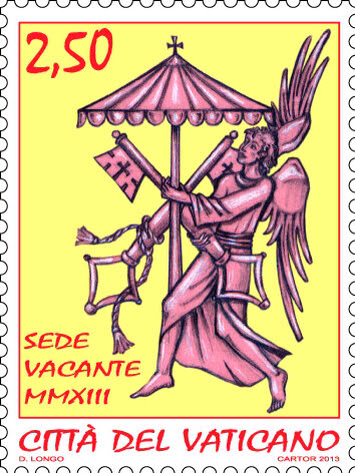In his
Wednesday audience address on February 13th, I was excited to see that Pope Benedict XVI cited
Dorothy Day, founder of the Catholic Worker Movement, to illustrate how even in the midst of rampant secularization and a myriad of
ideological enticements, God can still be found:
The ability to oppose the ideological enticements of her time in order to choose the search for truth and to open herself to the discovery of faith was witnessed by another woman of our time, the American Dorothy Day. She confessed openly in her autobiography to having succumbed to the temptation to solve everything with politics, adhering to the Marxist proposal: “I wanted to be with the protesters, go to jail, write, influence others and leave my dreams to the world. How much ambition and how much searching for myself in all this!”. The journey towards faith in such a secularized environment was particularly difficult, but Grace acts nevertheless, as she pointed out: “It is certain that I felt the need to go to church more often, to kneel, to bow my head in prayer. A blind instinct, one might say, because I was not conscious of praying. But I went, I slipped into the atmosphere of prayer...”. God guided her to a conscious adherence to the Church, in a life dedicated to the underprivileged.
It frustrates me that there are reasonable people, even Catholics, who cannot avoid seeing everything (including their faith) through the lens of their political ideology. Thou fool. As
Teofilo points out, it is folly to think "that man's fallenness is a myth, and that Utopia is just around the corner if humanity would only will it."
Before he mentioned Day, Benedict referred to diaries of
Etty Hillesum to illustrate how God can be found even in the midst of utter horror... in Hillesum's case, the Holocaust:
I am also thinking of Etty Hillesum, a young Dutch girl of Jewish origin who died in Auschwitz. At first far from God, she discovered him looking deep within her and she wrote: “There is a really deep well inside me. And in it dwells God. Sometimes I am there, too. But more often stones and grit block the well, and God is buried beneath. Then he must be dug out again” (Diaries, 97). In her disrupted, restless life she found God in the very midst of the great tragedy of the 20th century: the Shoah. This frail and dissatisfied young woman, transfigured by faith, became a woman full of love and inner peace who was able to declare: “I live in constant intimacy with God”.

